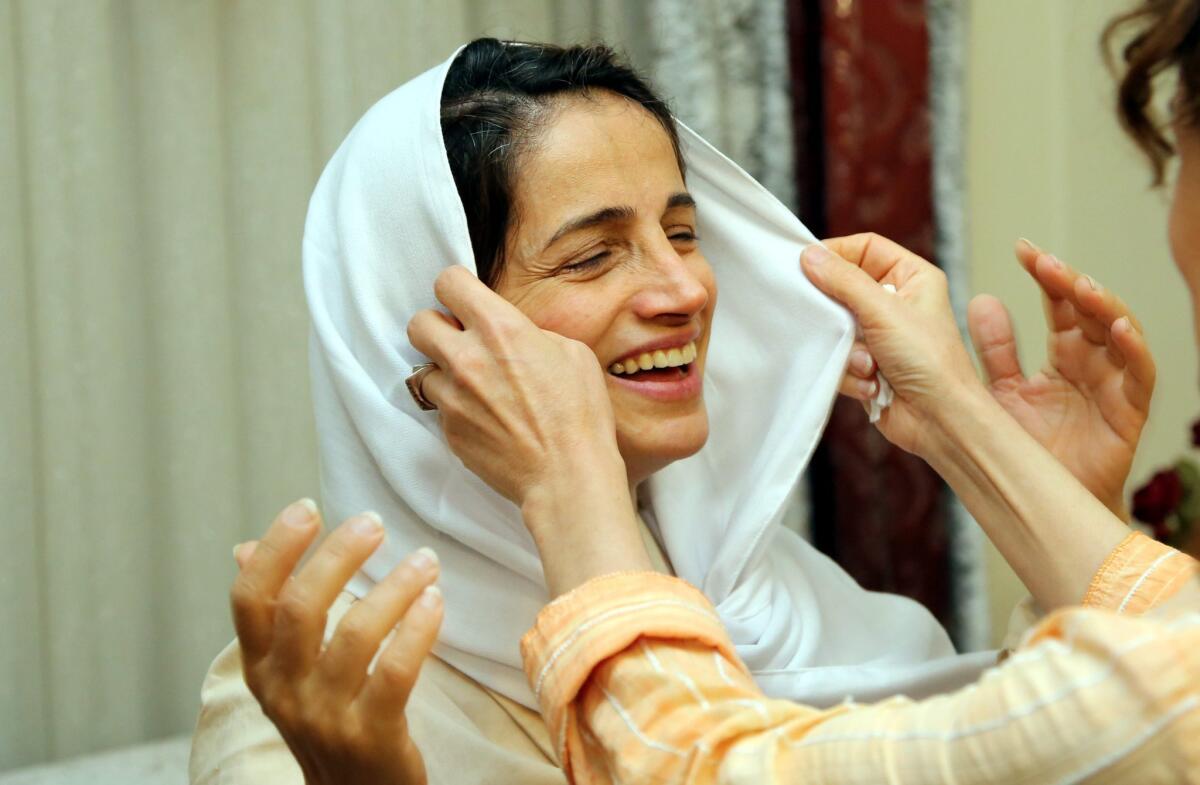Iran frees prominent dissidents: What the tea leaves say

- Share via
There was big news out of Iran on Wednesday: It freed heroic human rights activist Nasrin Sotoudeh, a lawyer whose crime was defending dissidents. She had been serving a six-year sentence, down from 11 years. But almost everything Iran does is part of a bigger story. The release of Sotoudeh and almost a dozen other political prisoners (mostly female) can be read four ways.
First, it may be a hopeful hint that Iran understands the costs, both at home and in the world’s eyes, of its egregious crackdowns in recent years. New President Hassan Rouhani had pledged to ease rigid restrictions on both political and social life during the campaign this spring. This is the first follow-through.
Second, and more cynically, the releases come on the eve of Rouhani’s debut speech at the United Nations next week. In the past, Iran has released prisoners on the eve of trips abroad by top officials. But this is the most significant.
Third, Iran also still has many, many political prisoners, most notably former presidential candidates Mir-Hossein Mousavi and Mehdi Karroubi, who have been under house arrest since shortly after the disputed 2009 presidential election. The Guardian newspaper estimated recently that Iran had about 800 political prisoners or prisoners of conscience. Iran must do far more to be taken seriously on human rights issues.
And finally, there is a U.S. angle. President Obama cited Sotoudeh in his March 2011 message to the Iranian people on their Nowruz new year’s celebrations. He said:
“For nearly two years, there has been a campaign of intimidation and abuse. Young and old, men and women, rich and poor -- the Iranian people have been persecuted. Hundreds of prisoners of conscience are in jail. The innocent have gone missing. Journalists have been silenced. Women tortured. Children sentenced to death. The world has watched these unjust actions with alarm. We have seen Nasrin Sotoudeh jailed for defending human rights.... These choices do not demonstrate strength, they show fear. For it is telling when a government is so afraid of its own citizens.”
Obama and Rouhani will both speak to the world body on Tuesday. There is much talk about whether the U.N. opening will produce a chance handshake or, perhaps more likely, what in diplo-speak is called a meet-and-greet between U.S. and Iranian foreign ministers.
So, I wonder, is this move a signal? Does this set the stage for something else, something bigger? In light of all that looms ahead between the United States and Iran, you have to hope.
ALSO:
Obama’s bait-and-switch on Syria
On foreign policy, a consistently inconsistent president
The new Miss America is not Muslim -- but so what if she were?
Robin Wright is a joint scholar at the U.S. Institute of Peace and the Woodrow Wilson Center. She most recently wrote “The risk of taking on Syria” for our Op-Ed pages and contributed to the Opinion L.A. blog: “Will U.S.-Russia deal change battlefield realities in Syria?” and “Obama’s speech on Syria: Why our analysts are mostly hopeful.”
More to Read
A cure for the common opinion
Get thought-provoking perspectives with our weekly newsletter.
You may occasionally receive promotional content from the Los Angeles Times.









